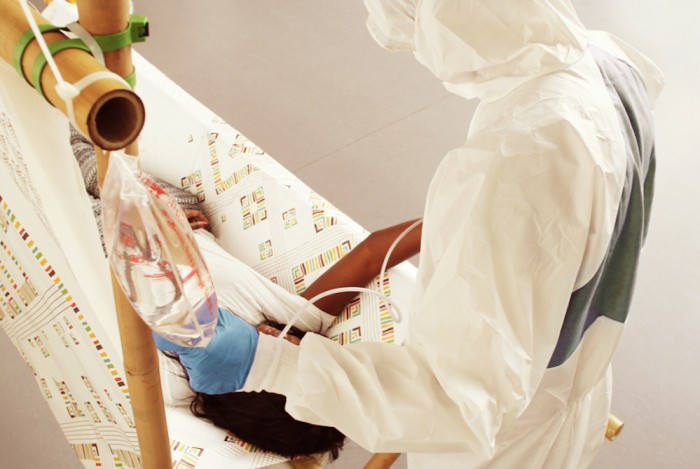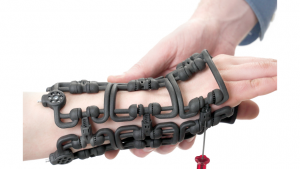The 2014 Ebola outbreak ravaged West Africa, claiming 11 310 lives out of the 28 616 cases reported between 2014 and 2015. One of the major problems during the outbreak was the lack of capacity to provide help to all who needed it. This led to contagious patients infecting others once they returned to their communities. In addition, patients with other diseases were unable to get help.
In our list of Dubai Design Week's Global Grad Show projects last year, we featured the Ubuntu containment bed created by Inters Ilbasan of the Umea Institute of Design. Ubuntu is an African philosophy that refers to “the belief in a universal bond of sharing that connects all humanity”. To easily share knowledge, the designer created the Ubuntu containment bed with resources that are readily accessible for a rapid response time.
The design features anti-microbial, lightweight, durable and easily accessible materials. The package includes zip ties and a roll of Tyvek that has instructions on how to build the containment bed with bamboo sticks printed on it. Because it is lightweight, the bed can also be used to transport patients between wards and utilise fewer hospital workers per patient.
Once the bamboo sticks are collected, it takes an hour for one person to build the bed. The Tyvek is looped around the structure to create a comfortable mattress and a privacy barrier. When the mattress gets contaminated, it is removed and replaced with another Tyvek sheet, which decreases the risk of infection compared to cleaning a standard hospital bed.
The artwork printed on both the mattress and barrier aims to comfort the community and build trust through design by applying the region’s traditional and cultural graphic styles.








